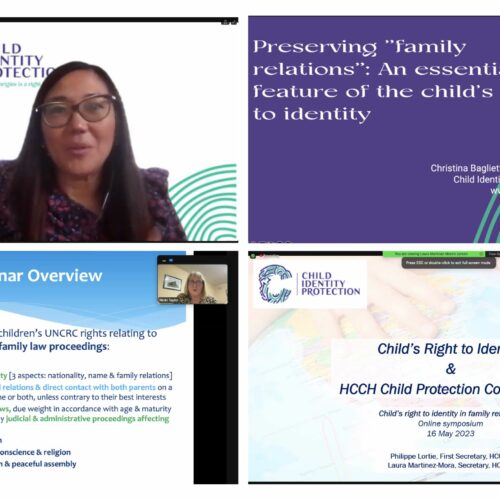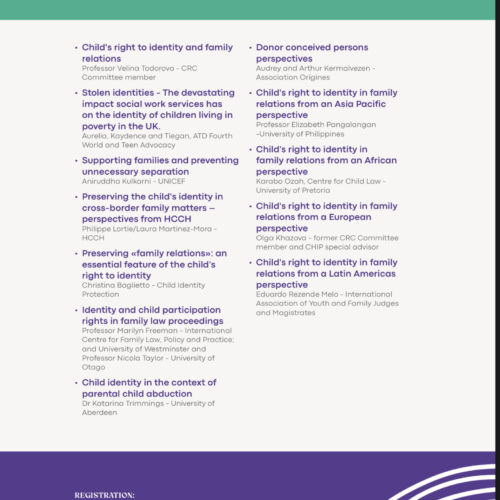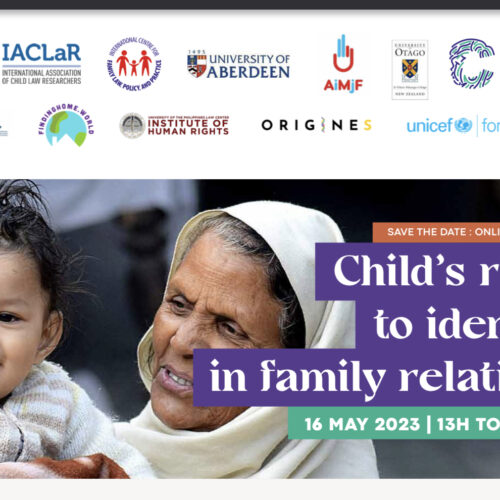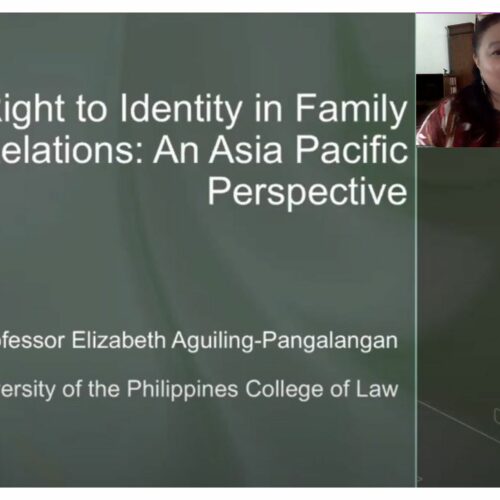UP IHR Director Professor Elizabeth Aguiling-Pangalangan speaks in international forum on Child’s Right to Identity
On 16 May 2023, UP Law Institute of Human Rights (UP IHR) Director Professor Elizabeth Aguiling-Pangalangan served as a resource speaker in an international online symposium entitled “Child’s Right to Identity in Family Relations”. The UP IHR joined several institutional partners in the event which was hosted by Switzerland-based international NGO Child Identity Protection (CHIP) on the occasion of the International Family Day. Professor Aguiling-Pangalangan focused on the child’s right to identity in family relations from an Asia Pacific perspective.
In her talk, Professor Aguiling-Pangalangan discussed the legal and societal challenges of accepting surrogacy as a means of forming a family, detailing the legal approaches and alternatives to address surrogacy in Asia. More importantly, she identified concerns of citizenship, specifically the problem of statelessness, as well as of establishing legal parentage of children born out of international surrogacy arrangements. Professor Aguiling-Pangalangan also highlighted the country’s most recent policy and law reforms protecting children’s right to identity.
Other notable speakers from different regions tackled a range of issues which included preserving family relations, child participation rights, and child’s right to identity from various regional perspectives. The said speakers were from international organizations, institutions, and universities such as the University of Aberdeen, University of Pretoria, United Nations Committee on the Right of the Child (UN-CRC), United Nations Children’s Fund (UNICEF) Professor Nicola Taylor of the University of Otago, and Professor Marilyn Freeman of the University of Westminster.
The first set of speakers featured Professor Velina Todorova of the Committee on the Rights of the Child (CRC), Philippe Lortie and Laura Martinez-Nora of the Hague Conference on Private International Law (HCCH), and Aniruddha Kulkarni of UNICEF. Speakers in the second session were Christina Baglietto of CHIP who talked about family relations as an essential feature of the child’s identity; Dr. Katarina Trimmings of the University of Aberdeen who discussed child identity in the context of parental child abduction, and Audrey and Arthur Kermalvezen from Association Origines delved into donor-conceived persons’ perspectives.
The child’s right to identity was likewise examined from varied regional perspectives. Aside from Professor Aguiling-Pangalangan who discussed the Asia Pacific region, Karabo Ozah of the University of Pretoria spoke on the experience of Africa, former UN-CRC member Olga Khazova spoke on the European perspective, and Eduardo Rezende Melo of the International Association of Youth and Family Judges and Magistrates explained the Latin American viewpoint.
The floor was subsequently opened to entertain questions surrounding legal and policy challenges to the child’s right to identity. CHIP Executive Director Mia Dambach served as the symposium’s moderator.











































































































 on the upper right corner to select a video.
on the upper right corner to select a video.